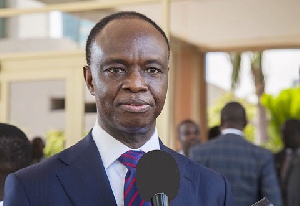As at the end of January this year, the total subscriptions of mobile data in Ghana stand at more than 20 million with a penetration rate of 70.90 per cent, Mr Joe Anokye, the Director-General of the National Communications Authority (NCA) has announced.
This, he said, brings in its wake the menace of cyber crime explaining that as more and more people got access to data, cases of cyber crime was expected to escalate.
However, Ghana, he said, was putting up measures through the enactment of policies and legislation as well as building the capacities of members of the judiciary and the security agencies in identifying and prosecuting cyber crimes.
“There is actually going to be a formal training from Monday through Friday in the training of selected judges, selected BNI officials and national security officials just so that they are well prepared, to handle cyber crime.
“Just in November cabinet approved cyber security policy strategy. So now we are going from policy to implementation so it is good to have the Council of Europe here to assist us to address our challenges,” Mr Anokye said.
Mr Anokye, who is also the National Coordinator of the Global Action on Cybercrime Extended (GLACY+)was speaking at the opening of a three-day international workshop on “criminal justice, statistics on cybercrime and electronic evidence” being held in Accra, under the auspices of the GLACY+.
GLACY+ is a joint project of the European Union and the Council of Europe that provide support to countries worldwide and the implementation of the Convention on cybercrime usually referred to as the Budapest Convention.
Mr Anokye said the Council of Europe’s assessment of Ghana had revealed some gaps in the country’s efforts to fight the menace, which included gaps in the collection and management of statistics in Cybercrime and Electronic Evidence as well as Underreporting of Evidence.
“These poor and inadequate reporting mechanisms greatly hinder Cyber security efforts. We are aware also of the capacity gap with regards to Cybercrime when a fraud is reported.”
He also said in many of the countries there were little or no existence reporting systems on cyber crimes as in Ghana, therefore, the various law enforcement agencies and the judiciary have different ways of recording and reporting cybercrime and its electronic evidence.
“Quite apart from that Ghana, and for that matter other countries does not have standardised definitions such that terminology like cyber-enabled and cyber-dependents may mean different things to different institutions or countries”, he noted.
Mr Anokye therefore urged Ghana and other participating countries to undertake various exercises and activities that would be organised by the GLACY+ to equip them to develop the appropriate systems to record and report cybercrime and cyber-enabled cases.
Business News of Monday, 3 April 2017
Source: GNA

















